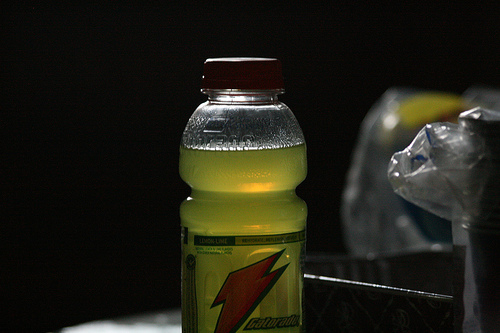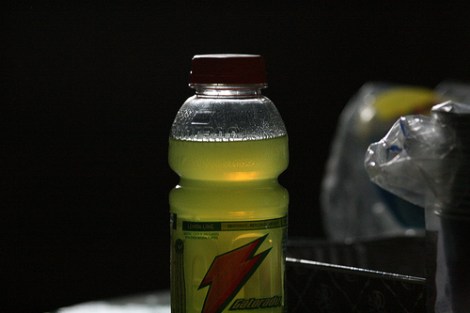Sarah Kavanagh is 15, a vegetarian, and a resident of Hattiesburg, Miss. She also sometimes drinks Gatorade, and when she looked at the label one day to check it for animal products, she discovered that it contained something scary-sounding: brominated vegetable oil.
“Vegetable” sounds good, but “brominated” is a little concerning, and what is “oil” doing in Gatorade? A little bit of research told her she was right: This stuff is kinda scary. As The New York Times explains:
Brominated vegetable oil contains bromine, the element found in brominated flame retardants, used in things like upholstered furniture and children’s products. Research has found brominate flame retardants building up in the body and breast milk, and animal and some human studies have linked them to neurological impairment, reduced fertility, changes in thyroid hormones and puberty at an earlier age.
Limited studies of the effects of brominated vegetable oil in animals and in humans found buildups of bromine in fatty tissues. Rats that ingested large quantities of the substance in their diets developed heart lesions.
It’s also banned in places like Europe. But, hey, it keeps the fruit flavoring in citrusy drinks like Gatorade, Fanta, Mountain Dew, and Sunkist Peach soda evenly distributed! That’s worth the headaches, fatigue, loss of muscle coordination, memory loss, ulcers, and swollen hands that people who’ve overdone it on citrusy soda have developed, right?
Kavanagh does not think so, and she started a petition on Change.org to ask Pepsi to change the Gatorade formula. In the best possible world, no one would drink these sodas, of course, but as long as they are around, they should probably not be slowly poisoning the people who drink them. Many, many people agree: Kavanagh’s petition has gotten more than 200,000 signatures.




